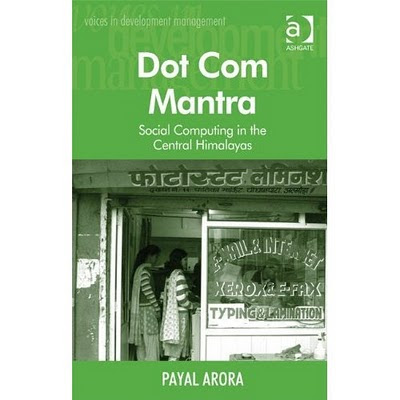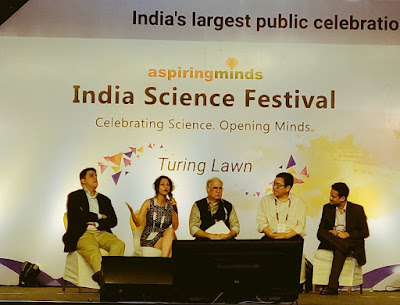Book Release: Dot Com Mantra: Social Computing in the Central Himalayas

At last, eight months in the Central Himalayas spent examining how people use computers and the Internet has panned out - my first book published by Ashgate publishing (UK) has just got released.
ABSTRACT: Billions of dollars are being spent nationally and globally on providing computing access to digitally disadvantaged groups and cultures with an expectation that computers and the Internet can lead to higher socio-economic mobility. This ethnographic study of social computing in the Central Himalayas, India, investigates alternative social practices with new technologies and media amongst a population that is for the most part undocumented. In doing so, this book offers fresh and critical perspectives in areas of contemporary debate: informal learning with computers, cyberleisure, gender access and empowerment, digital intermediaries, and glocalization of information and media.
REVIEWS:
'A towering piece of research and writing, imbued with theoretical and methodological vigor, and sensitively illuminating the intersections of digital media and human ingenuity in the Central Himalayas. A must read.'
Arvind Singhal, University of Texas at El Paso, USA, and Clinton School of Public Service, USA
'In every age, innovative technology has been met with an awkward mixture of enthusiasm, indifference, scepticism and hostility. The advent in our time of cheap, mobile computing and cellular telephones has drawn a similar response, especially in the international development community. In Dot Com Mantra, Payal Arora goes beyond the familiar juxtapositions to show how poor individuals and communities actively negotiate their engagement with twenty-first century technology, documenting the conditions under which they use, abuse and reject it in their everyday lives. The result is a book that is fascinating in its own right, but also highly instructive to a new generation of development policymakers, in rich and poor countries alike, caught between an imperative for easy answers and the reality of messy complexity.'
Michael Woolcock, World Bank



Comments
Post a Comment